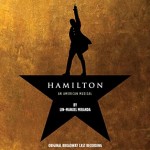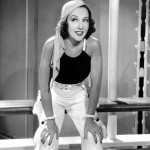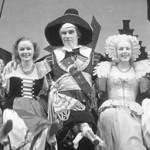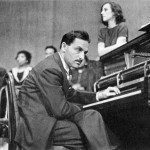 On July 28, Leslie Jones, Laverne Cox, Josh Gad, and Tatiana Maslany announced the nominations for the 72nd Primetime Emmy Awards for television and digital programming that premiered from June 1, 2019, to May 31, 2020. The Creative Arts trophies will be handed out at a two-day ceremony on September 12-13, while the Primetime awards will be presented during a ceremony on September 20 broadcast live on ABC with host Jimmy Kimmel. HBO’s limited series Watchmen garnered the most Primetime nominations with 11, including nods in three of the five composition categories.
On July 28, Leslie Jones, Laverne Cox, Josh Gad, and Tatiana Maslany announced the nominations for the 72nd Primetime Emmy Awards for television and digital programming that premiered from June 1, 2019, to May 31, 2020. The Creative Arts trophies will be handed out at a two-day ceremony on September 12-13, while the Primetime awards will be presented during a ceremony on September 20 broadcast live on ABC with host Jimmy Kimmel. HBO’s limited series Watchmen garnered the most Primetime nominations with 11, including nods in three of the five composition categories.
Nominees for Original Music & Lyrics include “All for Us” (Euphoria) by Labrinth (watch here), “Build It Up” (Little Fires Everywhere) by Ingrid Michaelson (listen here), “Eat Shit, Bob” (Last Week Tonight) by David Dabbon, Joanna Rothkopf, Jill Twiss, and Seena Vali (watch here), “Letter to My Godfather” (The Black Godfather) by Pharrell Williams and Chad Hugo (listen here), “Memorized” (This Is Us) by Siddhartha Khosla and Taylor Goldsmith (watch here), “One Less Angel” (The Marvelous Mrs. Maisel) by Thomas Mizer and Curtis Moore (listen here), and “The Way It Used to Be” (Watchmen) by Trent Reznor and Atticus Ross (listen here). While nominees for Main Title Theme Music include Ólafur Arnalds (Defending Jacob), Nathan Barr (Carnival Row), Nathan Barr (Hollywood), Antonio Gambale (Unorthodox), Laura Karpman (Why We Hate), and RZA (Wu-Tang: An American Saga).
Nominees for Dramatic Score of a Series include Danny Bensi and Saunder Jurriaans (Ozark), Nicholas Britell (Succession), Ludwig Göransson (The Mandalorian), Labrinth (Euphoria), and Martin Phipps (The Crown). Nominees for Dramatic Score of a Limited Series include Nathan Barr (Hollywood), Kris Bowers (Mrs. America), Antonio Gambale (Unorthodox), Mark Isham and Isabella Summers (Little Fires Everywhere), and Trent Reznor and Atticus Ross (Watchmen). Nominees for Dramatic Score of a Documentary Series include Amanda Jones (Home), Laura Karpman (Why We Hate), Mark Mothersbaugh, John Enroth, and Albert Fox (Tiger King), Pinar Toprak and Alex Kovacs (McMillion$), and Kamasi Washington (Becoming).
Nominees for Music Direction include Adam Wayne Blackstone (Super Bowl LIV Halftime Show), Rickey Minor (The Kennedy Center Honors), Rickey Minor (The Oscars), Lenny Pickett, Eli Brueggemann, and Leon Pendarvis (Saturday Night Live’s “SNL at Home #1”), and Sheila E., Jimmy Jam, and Terry Lewis (Let’s Go Crazy). Nominees for Music Supervision include Nora Felder (Stranger Things), Thomas Golubic (Better Call Saul), Catherine Grieves and David Holmes (Killing Eve), Kier Lehman (Insecure), Jen Malone and Adam Leber (Euphoria), Liza Richardson (Watchmen), and Robin Urdang, Amy Sherman-Palladino, and Daniel Palladino (The Marvelous Mrs. Maisel).
Nominees for Choreography include Jefferson Benjumea and Adrianita Avila (World of Dance), Al Blackstone (So You Think You Can Dance), Parris Goebel (Savage X Fenty Show), Jemel McWilliams (The Oscars), and Travis Wall (So You Think You Can Dance).
Additionally, two theatrical variety specials garnered three nods each. The 73rd Annual Tony Awards is nominated for Outstanding Live Variety Special, Outstanding Directing (Glenn Weiss), and Outstanding Lighting Design & Direction (Robert Dickinson, Noah Mitz, Ed McCarthy, Harry Sangmeister), while The Little Mermaid Live! is nominated for Outstanding Production Design (Misty Buckley, Joe Celli, Jason Howard), Outstanding Non-Prosthetic Contemporary Makeup (Bruce Grayson, Angela Moos, Jennifer Aspinall, et al.), and Outstanding Technical Direction, Camerawork, Video Control (Iqbal Hans, Rod Wardell, Emilie Scaminaci, Michael Miatico, et al.).















